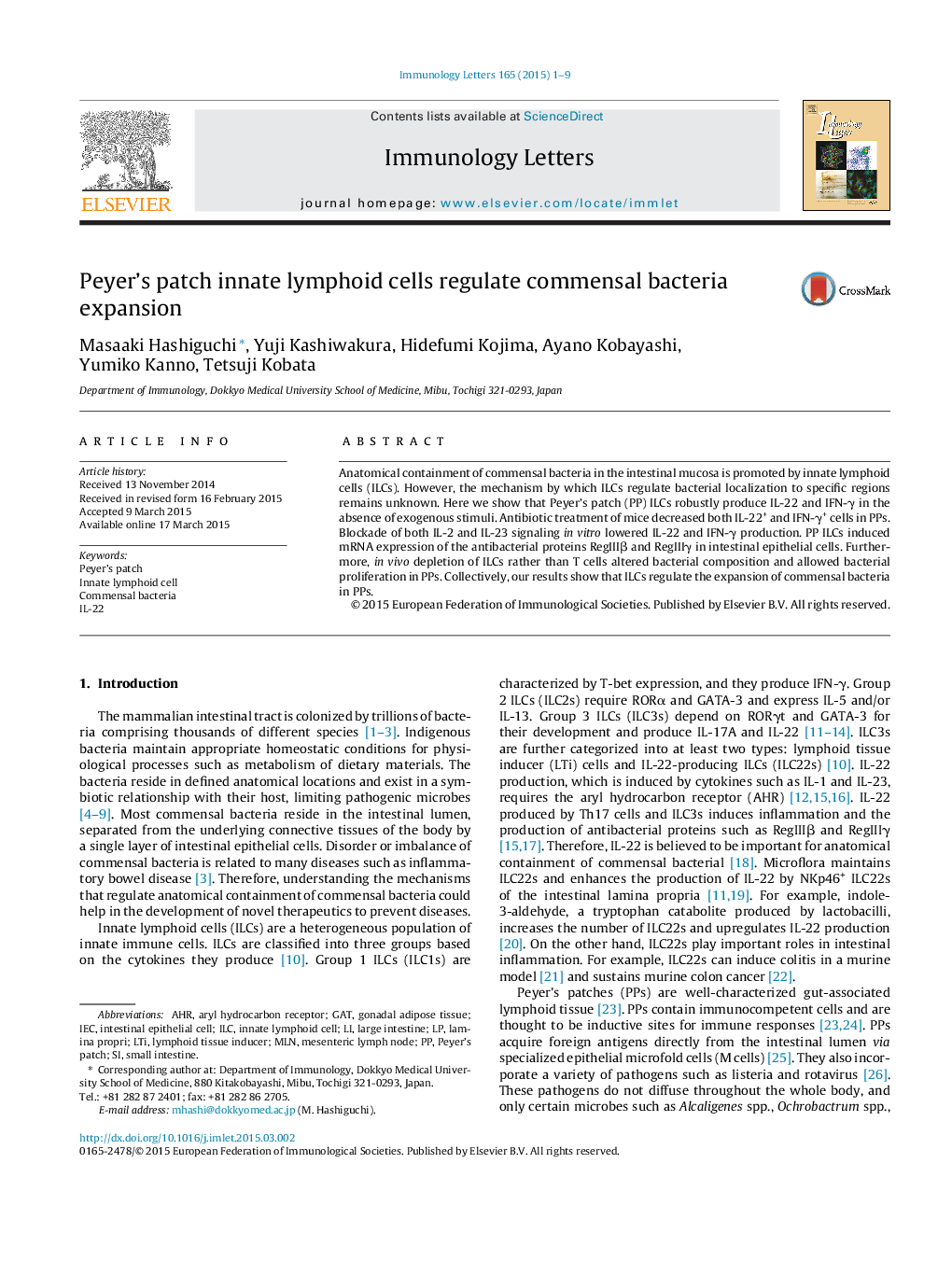| Article ID | Journal | Published Year | Pages | File Type |
|---|---|---|---|---|
| 6117091 | Immunology Letters | 2015 | 9 Pages |
Abstract
Anatomical containment of commensal bacteria in the intestinal mucosa is promoted by innate lymphoid cells (ILCs). However, the mechanism by which ILCs regulate bacterial localization to specific regions remains unknown. Here we show that Peyer's patch (PP) ILCs robustly produce IL-22 and IFN-γ in the absence of exogenous stimuli. Antibiotic treatment of mice decreased both IL-22+ and IFN-γ+ cells in PPs. Blockade of both IL-2 and IL-23 signaling in vitro lowered IL-22 and IFN-γ production. PP ILCs induced mRNA expression of the antibacterial proteins RegIIIβ and RegIIIγ in intestinal epithelial cells. Furthermore, in vivo depletion of ILCs rather than T cells altered bacterial composition and allowed bacterial proliferation in PPs. Collectively, our results show that ILCs regulate the expansion of commensal bacteria in PPs.
Keywords
Related Topics
Life Sciences
Immunology and Microbiology
Immunology
Authors
Masaaki Hashiguchi, Yuji Kashiwakura, Hidefumi Kojima, Ayano Kobayashi, Yumiko Kanno, Tetsuji Kobata,
